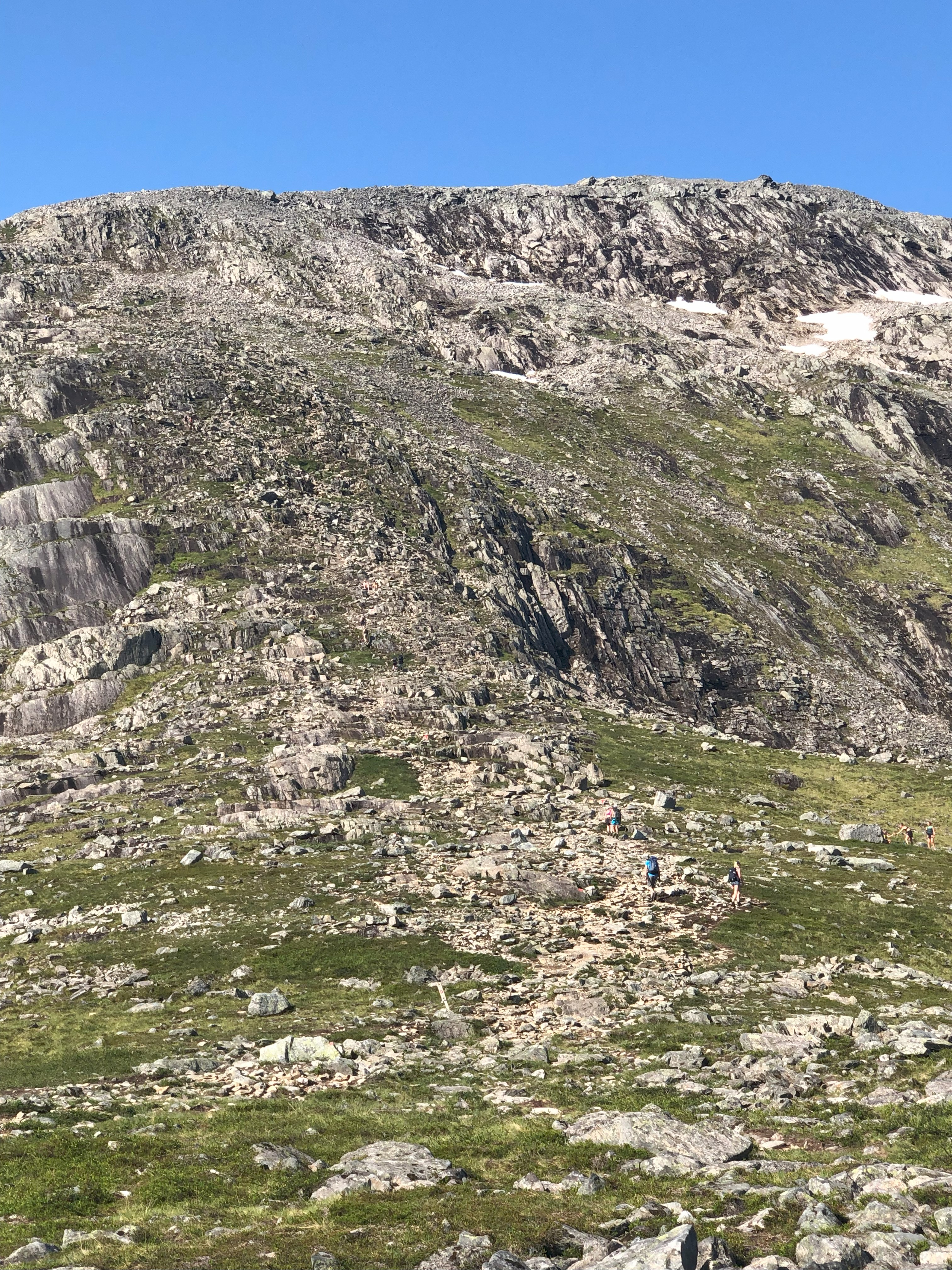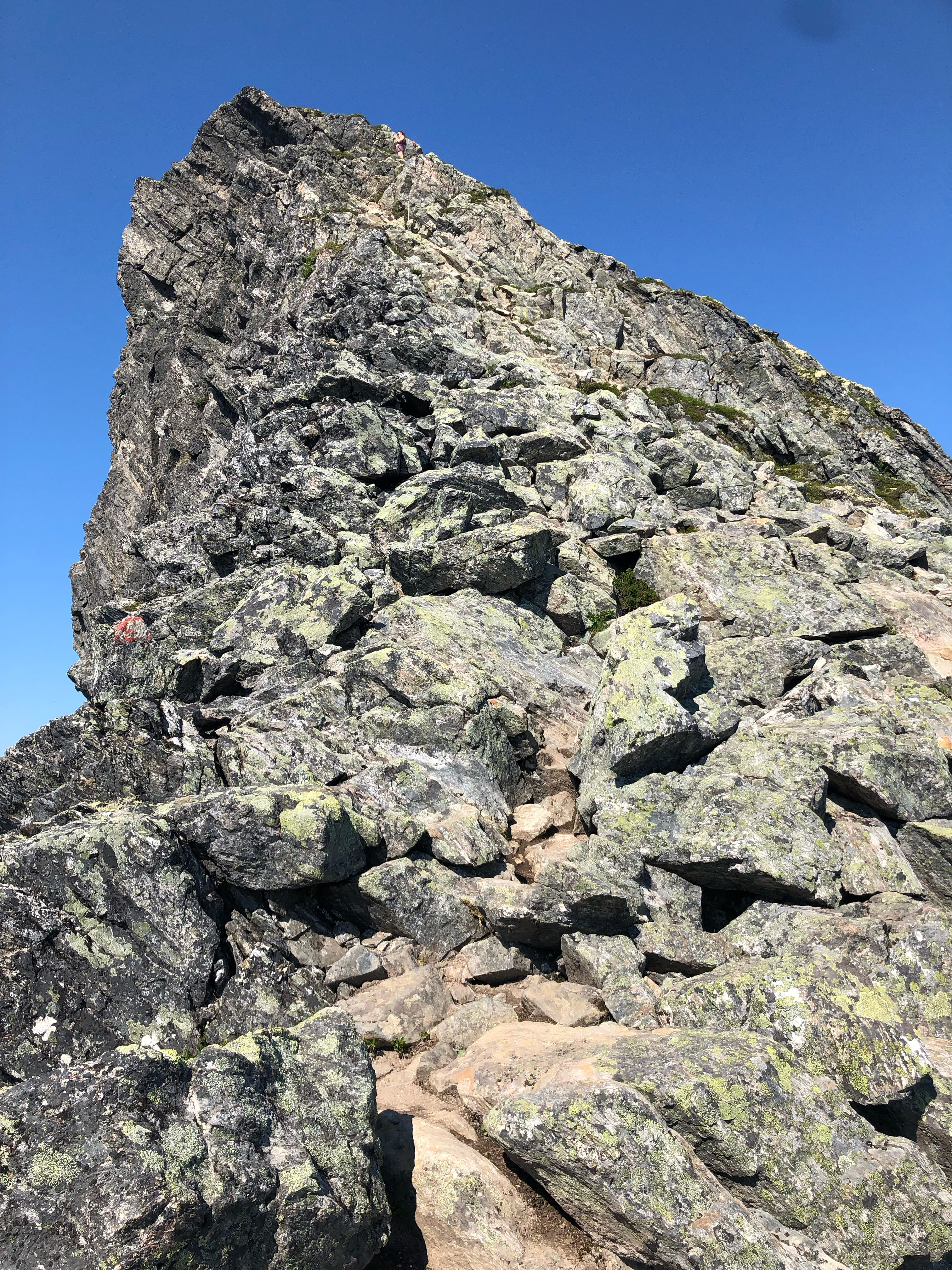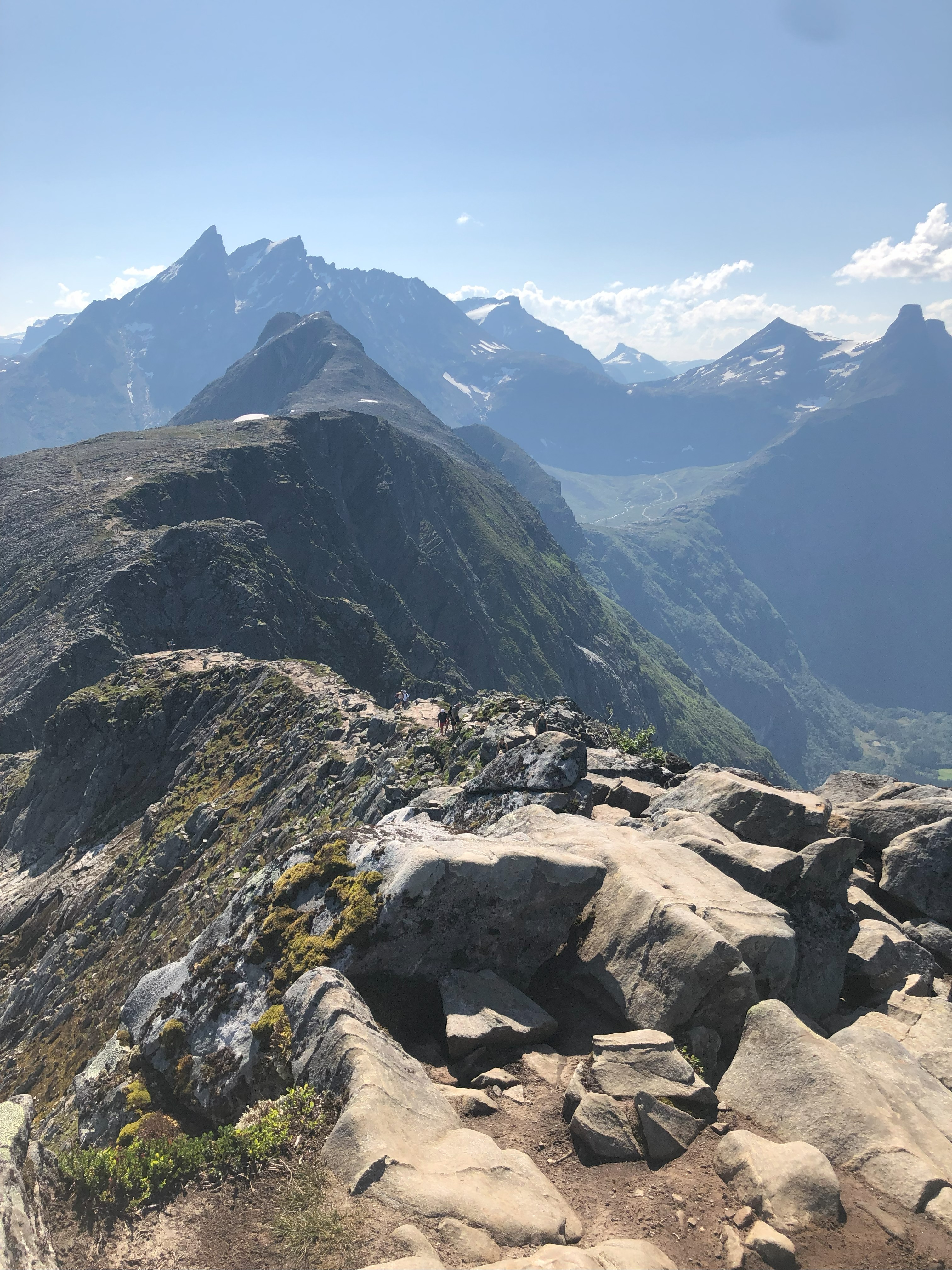Romsdalseggen: When The Guidebook Says 'Moderate'
Quick Block
Fat Cat Scale: 9/10 • View Score: 8/10
If I could text past-me 10 words: “‘Moderate’ is a lie. Bring more water. Godspeed.”
Before (The Moderate Deception)
Romsdalseggen Ridge. The guidebooks call it “moderate.” Online reviews say “challenging but doable.” Even the official tourism website describes it as “suitable for experienced hikers in good shape.”
None of these people were fat cats.
The plan was simple: a ridge walk above the Romsdal valley, connecting multiple peaks, with “spectacular views” of the surrounding fjords and mountains. After my sea-level to summit disasters in other parts of Norway, I thought this would be my redemption hike. My chance to prove I could handle Norwegian terrain without existential crisis.
Spoiler alert: The existential crisis simply migrated to a higher altitude.
During (The Beats)
Beat 1: The Innocent Beginning
The first hour is actually pleasant. Rolling hills, well-marked trail, that fresh Norwegian air that makes everything feel possible. I’m thinking, “Finally, a hike that won’t destroy me. This is why they call it moderate.”
The views over Romsdal valley are already impressive. Neat little farms, the river winding through the valley floor, mountains stretching to the horizon. I’m taking photos, feeling good about my life choices.
Classic fat cat overconfidence.
Beat 2: The Reality Adjustment
Hour two: the trail starts going up. And up. And then keeps going up for what feels like the rest of my natural life.

This isn’t “moderate” climbing. This is “question every decision that led to this moment” climbing. The kind of steep that makes you stop every 20 steps to “check the view” (read: desperately suck air).
And just when you think you’ve hit the top, Norway pulls its favorite trick: mountain behind a mountain, peak behind a peak — a nesting doll of false summits. Meanwhile a dog trots past me, casually cruising slabs I’m negotiating like a broken CI pipeline.
The cruel part? The views keep getting better. Every time I want to quit, there’s another vista that makes the suffering temporarily worth it. Classic Norwegian emotional manipulation.
Beat 3: The Ridge of No Return
Four hours in, I reach what I think is the top. It’s not the top. It’s the beginning of the actual ridge.
What follows is three hours of undulating ridge walking—up and down, up and down, with exposure on both sides and no escape routes. The views are spectacular: 360-degree Norwegian mountain theater, dramatic peaks, the valley floor impossibly far below.


But my legs are done. My water is running low. My snacks are gone. And there are still kilometers of ridge ahead.
This is where “moderate” becomes “survival mode.”
The Sherpa Stairs (aka the Rump‑streak)
The descent isn’t chaos this time—it’s orderly, beautiful punishment. The Sherpa‑built stone path is a work of art: solid, grippy, perfectly placed… and my legs are absolutely finished. Every switchback is a polite reminder that quadriceps are consumable items. I’m half‑walking, half‑rump‑streaking, blessing the stonework with every step while my knees file formal complaints. People float past looking fresh; I look like software running on 2% battery, but at least I’m running on stone.
After (Complete Devastation)
Nine hours and fifteen minutes after starting, I staggered into the parking area looking like I’d survived a natural disaster. Which, from a fat cat perspective, I had.
My legs were jelly. My feet were hamburger. My pride was nonexistent. But my camera was full of some of the most incredible mountain views I’d ever seen.
What I’d do differently: Actually train for this. Bring more food. Accept that “moderate” in Norway means “will test your will to live.” Maybe choose easier hobbies.
But also: nothing. Because sometimes you need to get completely destroyed by a mountain to remember why you do this. The suffering makes the views mean something.
Would I do it again? Ask me in six months when the pain has faded and I’ve romanticized the whole experience.
The POV Experience
Features: Increasingly labored breathing, questionable decision-making, and views that almost justify the suffering.